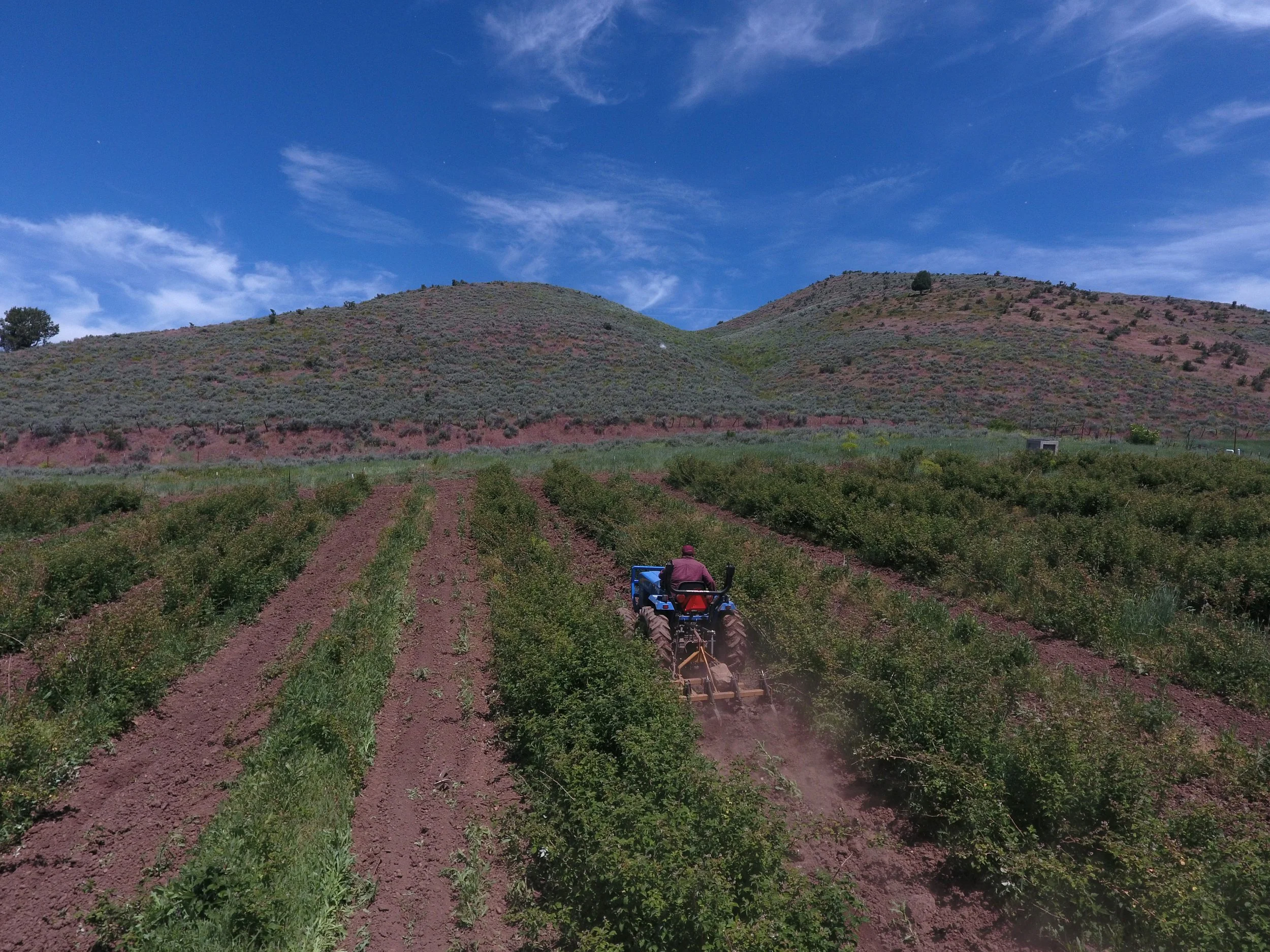FARMING
THAYNE & CARI TAGGE
The Farmers Who Said ‘No’ to Developers and ‘Yes’ to Utah’s Future
By Richard Markosian | Photography by Bryan Butterfield
BY ALL ACCOUNTS, THAYNE AND CARI TAGGE COULD HAVE TAKEN THE MONEY AND WALKED AWAY With Utah’s housing market booming and developers circling like vultures, their prime farmland in Perry and Willard could have been parceled into hundreds of lots. They would have walked away with millions.
But that’s not what happened.
Instead, they said no to short-term profit and yes to permanent preservation. They placed their land into a trust, ensuring that their orchards, crops, and soil — along with the hard-earned wisdom of decades — will feed Utah families for generations to come.
In doing so, the Tagges didn’t just protect land. They redefined what it means to be a steward, a neighbor, and a changemaker in a rapidly growing state. They’ve become living proof that legacy is more powerful than money — and that leadership often grows from the ground up.
From Soil to Stand: A Life of Purpose
Thayne didn’t inherit a legacy farm. He built one — with Cari by his side — through long days, backbreaking labor, and trial-and-error perseverance. The Tagge name is now synonymous with peaches, tomatoes, and unbeatable summer produce, but it didn’t start that way.
“I wasn’t really good at the beginning,” Thayne says with a laugh. “But now we’ve got some experience under our belt, and it makes a big difference.”
That humility masks the scale of what they’ve achieved. Tagge’s Fruit spans multiple plots in northern Utah, all within a few minutes’ drive. “I tried farming out in Holladay once,” he says. “Hauling equipment killed us. Now everything’s close — it’s efficient, and it works.”
What also works: their marriage. Cari isn’t just Thayne’s partner in life — she’s his partner in purpose. The two built the business together from the soil up. When she fell from a truck during a harvest a few years ago — an accident that landed her in an ambulance and shook the entire family — their son Chad had a change of heart. A few weeks later, he told them, “I want in.” He left his career in biomedical engineering, joined the farm full-time, and now oversees their advanced drip irrigation system.
A New Kind of Innovation
Walk onto Tagge’s orchard and you won’t just see rows of trees. You’ll see solar panels, sand filtration tanks, and a meticulously engineered drip system — all designed to deliver water with surgical precision.
“This system changed my life,” Thayne says. “I used to be out at two in the morning chasing water, watching my topsoil disappear. Now I water 68 acres from my phone.”
And he’s not the only one benefiting. Thayne’s neighbors have come to him for help, and he’s installed systems for them, too. “Farmers helping farmers — that’s how it should be.”
Water Wars: The Real Story
Despite those innovations, Thayne has been forced to cut irrigation early in recent years. Why? Not overuse. Not drought. Not crop mismanagement.
Lawns.
“Perry is using all the water to green up their grass,” he says, with evident frustration. “I order half an acre-foot, and they’re pulling ten into storage tanks just for landscaping.”
It’s a stark illustration of misplaced priorities. While family farms are slashing water usage and shifting to conservation-focused technology, suburban developments continue with water-thirsty yards and zero accountability.
In Henderson, Nevada, homeowners are limited to 20 gallons per person per day and use only recycled water on xeriscaped lots. “Why can’t we do that here?” Tagge asks. “All we get in Utah is a sign that says ‘Slow the Flow.’”
A Stance Against Displacement
As if water wasn’t enough of a challenge, farmland is also under siege from speculative development — and not just by American companies. In some parts of Utah, Tagge has learned, farmland is being quietly sold to Chinese nationals.
“They’re not local families. They’re foreign investors, sometimes buying up land near military bases. And no one’s talking about it.”
Thayne doesn’t deal in conspiracy theories — he deals in facts. And the fact is, Utah has lost tens of thousands of acres of farmland in recent years. Meanwhile, the costs of imported food skyrocket with fuel prices.
“If you can feed your neighbors, that’s priceless,” he says. “That’s value. That’s security.”
Farming in the Face of Pressure
Being a farmer today means being more than a grower. It means being a businessman, a water engineer, a mechanic, a teacher, and sometimes a political advocate. But Thayne and Cari have one motto that carries them through: no excuse farming.
“There are always reasons why you could fail,” Thayne says. “But if you take care of the tree, it’ll take care of you.”
That standard applies to every detail — from when they spray for insects to how they track each tree’s water intake. Even their tomato planting machine is optimized for speed and precision. “We plant 12,000 tomato plants in a day,” Thayne says. “My guys won’t tell me to speed up, but they will tell me to slow down.”
The results? Produce that’s not only delicious but consistent, reliable, and grown with unmatched care. Their fruit stands are now a fixture at nearly every farmers market in Utah, especially the “real one” at Murray Park.
“That’s where the bulk buyers go,” Thayne says. “That’s where we bring our best stuff.”
Cultivating the Next Generation
The Tagges haven’t just preserved farmland — they’ve preserved the possibility of farming itself. With Chad now on the team and their daughter Lacey also part of the family business, the Tagge farm is a living bridge between past and future.
But Thayne is realistic. He knows many young people don’t see farming as viable. “You have to make it profitable, or you won’t do it very long,” he says. “Start with garlic. Easy crop. Water it three times and you’re done. Doesn’t go bad. Then figure out your niche and who you’re selling to.”
He offers tough love, but also encouragement. “You’ve got to want it,” he says. “And you’ve got to control your land.”
Thayne learned that lesson the hard way. Years ago, he planted and nurtured a peach orchard only to show up the next season and find another farmer working it. “I didn’t own the land,” he says. “Never again.”
The Decision That Changed Everything
That’s why the Tagges placed their farmland into a conservation trust. It wasn’t about charity. It was about protection. It was about values. It was about the future.
“People forget how lucky they are to have land,” Thayne says. “Then they sell it and it’s gone forever.”
Utah is growing. Fast. And while there’s an undeniable need for housing, there’s also an irreplaceable value in open space, local food, and the generational knowledge that can’t be bought.
“If we don’t protect it now,” Thayne says, “there won’t be anything left to protect.”
Cultivating Hope
The Tagges don’t romanticize farming. They live it — dirt under their nails, weather apps on their phones, and no backup plan. When the irrigation system malfunctions at 2 am, Chad sleeps in the field to keep it from flooding nearby homes. When a shipment needs to go out, they don’t wait for help — they do it themselves.
“We call it no excuse farming,” Thayne says again. “Because that’s what it takes.”
Beneath the long hours and hard work lies something deeper: a quiet conviction that Utah is worth the effort. That local food matters. That family farming isn’t a relic of the past. It’s a steady, powerful force shaping the future of Utah.



